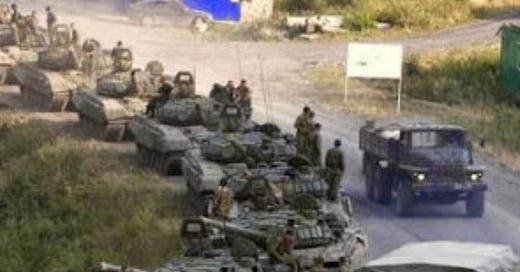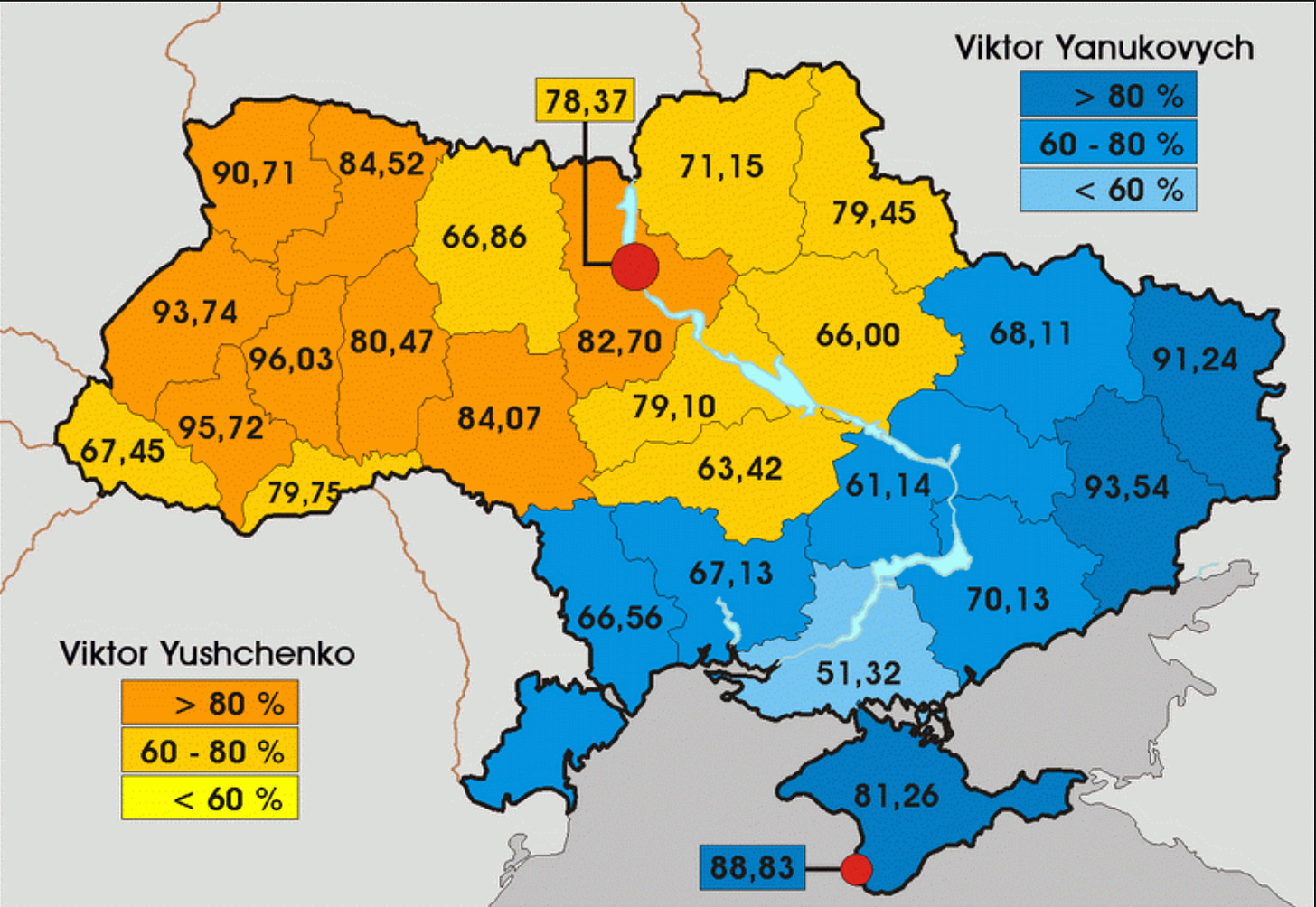First: Modern Tactics & the Red Army in Ukraine
On June 27, 1862, John Bell Hood led two regiments from his Texas Brigade, the 4th Texas and 18th Georgia, in a late-afternoon attack up the hill at the Battle of Gaines’ Mill. On November 25, 1863, the Army of the Cumberland launched a spontaneous, unorganized, and unordered assault up the hill of Missionary Ridge. Were those the last two successful frontal assaults against a competent and prepared opposition?
Firepower, cover, concealment, suppression, and staggered movement. Perhaps the toll of the bell was Wellington’s reverse-slope deployment victories in Portugal and at Waterloo. Perhaps it was the defense of the Great Redoubt at Borodino. Few outside the United States understood Andrew Jackson’s victory at the battle of New Orleans—indeed, few inside the United States understood it, falsely attributing the victory instead to the backwards sharpshooters of Kentucky.
Rate of fire. Rifled barrels. Breach loaders. Artillery. Barbed wire. These meant that if you could be seen, or if your location could be inferred and pinpointed within a sliding-scale amount that depended on opponents fire power, you were dead. That was what modern firepower meant, and means. The response has to be: cover and concealment. But how then do you move? In very short bursts, when the enemy firepower can be temporarily suppressed. But you cannot stay still either. When your firepower is traced back to your position and pinpointed, then you are dead as well, unless you have moved.
So it was at the Meuse River in 1940, on the flanks at Stalingrad in 1942, at Kasserine Pass in 1943, Operation Cobra in 1944, or the Fifth Panzer Army’s attack on US VIII Corps in the Ardennes in 1944. Although—note well—not the Sixth SS Panzer Army next door, nor around the town of St. Vith, nor either prong of the Nazi attack at Kursk in 1943, and I have never yet figured out what really happened with the 5th Guards Tank Army’s counterattack at Prokhorovka.
Thus we get the tactical dance of professional modern warfare. Attackers creeping forward in small mutually-supporting combined-arms on the ground, and defenders dancing backward, abandoning each position just before attacking artillery registers on it. And in the air above are the eggshells-armed-with-hammers that must rely on their own speed and on the suppression of enemy fire to stay alive themselves.
Things get even worse for the attackers when they move from the countryside into the city, at least unless the attackers are willing to complete level the place—yet even when the city is bombed until the rubble bounces, the settled rubble create many opportunities for cover and concealment. For the defender in the city, the key skill is figuring out when it is time to bug out through the hole in the back of your current building and move to the next one. For the attacker in the city, the keys are… well, there are very, very few good keys.
All of this is well known, and it makes modern warfare a matter for professionals.
All of which is prelude to the question: Just what the hell does the Red Army think it is doing in the Ukraine?
One Video:
Ivan Werning: Taming a Minsky Cycle <https://bcf.princeton.edu/events/ivan-werning-on-taming-a-minsky-cycle-joint-with-emmanuel-farhi/> <https://bcf.princeton.edu/wp-content/uploads/2021/02/Combined-Slides-2.pdf>:
One Picture: Yushchenko vs. Yanukovich Election Results
Very Briefly Noted:
Andrew Gelman: Did Chinese Laborers on the Yangtze Pay Someone to Whip Them? Why Can’t Political Scientists & Economists Resist Telling This Evidence-Free Story? & Why Do They Keep Embellishing It? <https://statmodeling.stat.columbia.edu/2022/02/27/did-chinese-laborers-on-the-yangtze-pay-someone-to-whip-them-and-why-cant-political-scientists-and-economists-resist-telling-this-evidence-free-story/>
Bret Devereaux: A Trip Through Bertran de Born (Martial Values in the 12th Century Occitan Nobility): ‘With… Dhuoda of Uzès… two sides of the same coin: it is the fierceness of the loyalties that Dhuoda extols which in turn justify and motivate the fierceness of the violence in which Bertran revels… <https://acoup.blog/2020/04/16/collections-a-trip-through-bertran-de-born-martial-values-in-the-12th-century-occitan-nobility/> <https://acoup.blog/2020/03/27/a-trip-through-dhuoda-of-uzes-carolingian-values/>
Poisson Calculator <https://stattrek.com/online-calculator/poisson.aspx>
Google Books: Ngram Viewer: ‘Environment… LINK: <https://books.google.com/ngrams/graph?content=environment&year_start=1800&year_end=2019&corpus=26&smoothing=3&direct_url=t1%3B%2Cenvironment%3B%2Cc0#t1%3B%2Cenvironment%3B%2Cc0>
FT-IGM: Macroeconomists’ Survey <https://www.igmchicago.org/wp-content/uploads/2021/12/RESULTS-2021-12-03-Survey-03.pdf>
Paragraphs:
<strike>David</strike> Matt Levine: Russia’s Money Is Gone: ‘One great theme of the post–2008 financial world is that money is a social construct, a way to keep track of what society thinks you deserve…. That has always been true, but modern finance has made it more obvious…. As of Friday Russia had about $630 billion of foreign currency reserves, a large cushion…. But “foreign currency reserves” are not an objective fact; they are mostly a series of entries on lists maintained by foreign-currency issuers and intermediaries… a set of accounting entries…. In a crisis the accounting entries don’t matter at all. All that matters are relationships, and if your relationships get bad enough then the money is as good as gone…
LINK: <https://www.bloomberg.com/opinion/articles/2022-02-28/russia-s-money-is-gone>
Jag Bhalla: The Other Invisible Hand: ‘There’s no real argument about the fact that “the evolution of cooperation is central to all living things.” That’s the first line of a Nature Ecology & Evolution paper by the biologists Nicholas Davies, Kevin Foster and Arvid Ågren, and it expresses an utterly uncontroversial view among biologists. The paper examines a “central puzzle”: “Why does evolution favor investment in cooperation rather than self-serving rebellion that would undermine a particular genome, organism or society?” Surely a topic of central concern to economists also. The authors present abundant “evidence that enforcement shapes cooperation across all levels of biology.” Enforcement is defined as “action that evolves … to reduce selfish behavior within a cooperative alliance.” Adding to copious real-world cases, modeling shows that whenever “new selfish elements are introduced to a population, the evolution of suppression is often rapid.” Otherwise, gains from selfishness get ruinously risky…
LINK: <https://www.noemamag.com/the-other-invisible-hand/>
John Stuart Mill: War Is an Ugly Thing: ‘But [it is] not the ugliest of things: the decayed and degraded state of moral and patriotic feeling which thinks that nothing is worth a war, is much worse. When a people are used as mere human instruments for firing cannon or thrusting bayonets, in the service and for the selfish purposes of a master, such war degrades a people. A war to protect other human beings against tyrannical injustice; a war to give victory to their own ideas of right and good, and which is their own war, carried on for an honest purpose by their free choice-is often the means of their regeneration. A man who has nothing which he is willing to fight for, nothing which he cares more about than he does about his personal safety, is a miserable creature who has no chance of being free, unless made and kept so by the exertions of better men than himself. As long as justice and injustice have not terminated their ever-renewing fight for ascendancy in the affairs of mankind, human beings must be willing, when need is, to do battle for the one against the other…
LINK: <https://acoup.blog/2022/02/25/miscellanea-understanding-the-war-in-ukraine/>
Bret Devereaux: Understanding the War in Ukraine: ‘How Will This End? Badly. Beyond that, no one really knows…. Putin is likely to carry this war to its conclusion. The reputational cost of turning back now, with blood already shed, would be catastrophic…. The balance of equipment and numbers suggests that Russian forces are very likely to win… [but] ‘swift Russian victory’ is…. a rapidly vanishing possibility…. We can be pretty sure that the human toll here is going to be terrible…
LINK: <https://acoup.blog/2022/02/25/miscellanea-understanding-the-war-in-ukraine/>
Michael Kofman: ’Today may have been the worst day for the Russian military in Ukraine so far. They are still advancing, but there were a # of videos of destroyed or abandoned equipment and units. I have no idea why they sent in a small spetsnaz unit into Kharkiv, but it was easily repelled. It is clear they hoped to get Zelensky to surrender quickly without inflicting heavy casualties on the Ukrainian military/civilians. That failed, but their execution still appears to be fairly restrained (e.g. in Kharkiv without armor). Certainly concerned plan B is more force. They’re trying to further resource a failed strategy, neither willing to concede it was based on completely ridiculous assumptions, or open up a brutal warfighting effort using the bulk of the military power they have assembled. And they have ended up in the worst of all worlds. One must wonder when they will make the switch to more of a total war type strategy. I am surprised that after day two when it was apparent light force wasn’t working they would. Maybe their command structure is far less reactive than we thought…
LINK:








Pretty sure that's from Matt Levine, not "David". At least, going by the Money Stuff newsletter in my in box.
It's great to see you quoting Matt Levine. He does a good job of explaining the world of finance and he can be very funny.
May I recommend Angry Staff Officer. It's a mix of modern military, military history and science fiction fan service. There's a good article there comparing Afghanistan, not to Vietnam, but to China, and an interesting article on the return of large scale operations to US military thinking. I'm waiting for their take on the Ukraine.